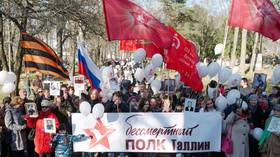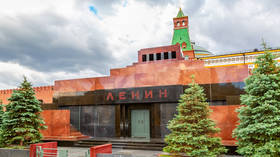A world without Russia: How hundreds of thousands of citizens have become convinced that their country doesn't really exist
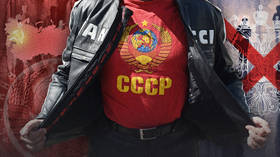
The collapse of the USSR in 1991 was a traumatic event and a severe trial for many of its citizens. More than 30 years later, there are still people who refuse to believe it actually happened. The accumulated resentment has resulted in the formation of ‘Citizens of the USSR’ – a radical organization convinced that the Soviet Union continues to legally exist, while considering the government of the Russian Federation to be illegitimate.
These beliefs lead to illegal behavior. The adherents of the movement refuse to pay taxes, don’t comply with Russian laws and don’t want to live according to the principles of a capitalist society. They also don’t pay utility bills or honor previously obtained bank loans. The structure of the organization resembles a sect whose members, under the guise of high ideals, voluntarily cut off ties with their family and hand their property over to the organization.
The movement is recognized as extremist and is banned in the Russian Federation. Some of its members are already behind bars. Nevertheless, the Citizens of the USSR still exists and the Federal Security Service (FSB) continues to discover more of its followers.
“There is no Russian Federation”
“The USSR did not collapse and there are no documents confirming that the USSR ceased to exist. Three people signed a document about the alleged collapse of the USSR. Three people cannot decide for all the republics and for the whole country! Moreover, this paper does not even exist! There is a photo of this document, there is a photocopy, but there is no original document! This matter can only be decided by the people. On March 17, 1991, at the All-Union referendum, 76% of citizens voted in favor of the preservation of the Soviet Union. The USSR did not give a single square centimeter to anyone, not a single republic left the USSR. Consequently, everyone remained in the USSR,” says Alexey Garanin, a resident of a remote part of Russia who considers himself a citizen of a country that disappeared over 30 years ago.
Alexey is dressed in a T-shirt, tracksuit, and baseball cap bearing Soviet symbols and the USSR abbreviation. In his apartment, decorated with a portrait of Joseph Stalin and numerous Soviet coats of arms, he tells a Mash Paradox journalist the details of his “faith.”
For example, Alexey does not recognize the Russian ruble as the official currency and only considers Soviet banknotes to be legitimate. He follows the official exchange rate of the USSR State Bank on the website of the Central Bank of the Russian Federation (the bank uses it to calculate international payments on old Soviet loans). The current exchange rate is 55.5 Soviet rubles for $100.
“And all this money is valid across the RSFSR. So 1,000 Soviet rubles is $2,000. That’s a lot of money lying on the table,” he told a journalist, pointing to Soviet banknotes.
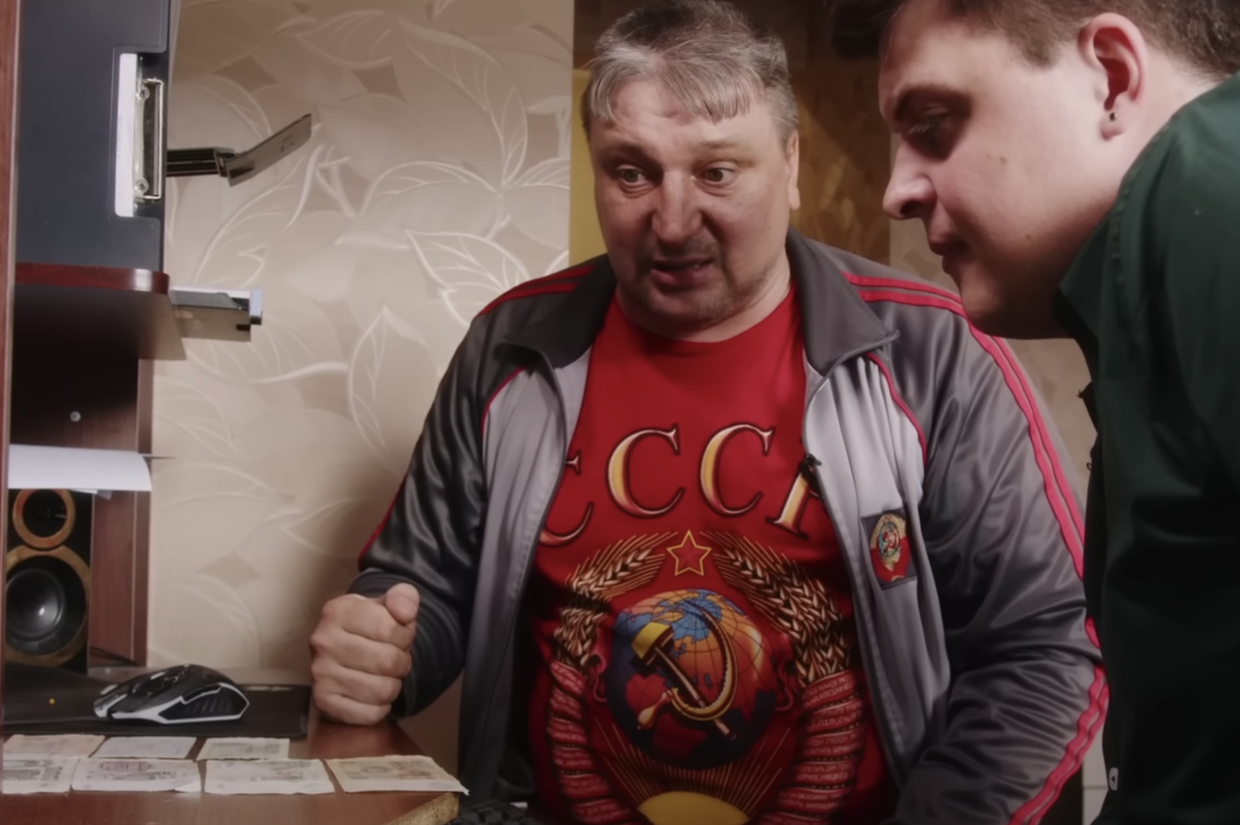
Garanin is convinced that unlike the Soviet Union, the Russian Federation does not really exist. And his belief is shared by the movement’s supporters throughout the country. When a Vesti news correspondent asked a woman from Nizhny Tagil, “What about the Russian Federation?”, she said “It does not exist!”
“The Russian Federation has no territory and no people. Who gave it territory? Do any acts exist on the transfer of territory [and] people, did anything like that happen? There is no Russian Federation!” she said.
The woman does not pay utility bills for the same reason – she is a “citizen of the USSR,” not of the Russian Federation, so she is not obliged to comply with Russian laws.
“The Russian Federation is an illegal formation on the territory of the Union of Socialist Republics,” said "Akhmetov," another adherent of the movement.
The USSR didn't collapse?
All these people consider themselves ‘citizens of the USSR.’ and believe that Russia, which became its legal successor, is only a commercial project remotely controlled from abroad.
They are convinced that Soviet laws (like the constitution of 1977) are still in force. The members of the organization do not recognize the current government nor its legislative acts, including the constitution of the Russian Federation. They believe that they are not obliged to live according to contemporary Russian law, which includes paying taxes, utility bills, and making mortgage payments.
In August of last year, the Ministry of Justice of Russia included the Citizens of the USSR in the list of organizations that are banned by the court and must be closed down. Shortly before that, on June 16, 2022, the activities of this movement were recognized as extremist and were banned throughout Russia by the Samara regional court.
Other names of the organization were also banned, including ‘The Power Union of Soviet Light Generations,’ ‘The Council of Soviet Socialist Districts,’ ‘The Council of the Union of Soviet Socialist Districts,’ ‘The Supreme Council of the Union of Soviet Socialist Districts,’ ‘The Union of Soviet Socialist Republics’ and others (in Russian, all of the above names are abbreviated as ‘USSR’).
The organization’s constant change of names delayed the legal battle against it, and the movement had to be banned repeatedly. For example, back in 2019, the Supreme Court of Komi prohibited the interregional public association ‘Union of Slavic Forces of Russia’ – one of the former names of the Citizens of the USSR.
The members of the organization hold meetings and congresses, and even elect their own officials. In 2019, the court noted that the organization operates on the territory of at least 30 subjects of the Russian Federation. According to data provided by the FSB, which the publication Kommersant cited five years ago, the organization already had about 150,000 followers in 2018.
How the ‘Citizens of the USSR’ appeared
In 2010, dentist Sergey Taraskin came up with the idea of ‘reviving’ the USSR – or rather, declaring its alleged existence. At the time, he was engaged in a legal battle with the local authorities because his dental clinic had been evicted from a rented building. In 2008, he opened the clinic in Zelenograd, near Moscow. Tarasov found an investor, won a tender for the lease of the municipal premises and invested several million rubles in repairs. The clinic did not survive the financial crisis and soon closed due to debts. In the course of the eviction lawsuit, Taraskin suddenly declared that the Russian Federation did not legally exist. Moreover, he declared himself the acting president of the USSR.
“For over 18 years, this position has been vacant and none of the soldiers and officers of the Soviet Army that were obliged to fulfill their military oath, took up this position,” Taraskin said at the time. He called the first and only president of the USSR, Mikhail Gorbachev, a “deserter.”
After that, the activist began actively promoting the idea of the existence of the USSR, and even held meetings with his supporters in the form of “paid seminars organized by the government of the USSR.”
According to the outlet RBC, in 2018 his apartment and that of his colleague Alexander Solovyov were searched and Taraskin was accused of publically promoting extremist activities. Military counterintelligence officers of the FSB seized documents belonging to the ‘USSR’ organization.
In May 2022, the court sentenced Taraskin to eight years of imprisonment for founding an extremist organization.
Nevertheless, despite the fact that the former dentist, who became ‘president’ of the world’s largest country 18 years after its collapse, has been placed behind bars, his organization continues to exist. In June 2023, the FSB and the Ministry of Internal Affairs conducted searches in the Nizhny Novgorod region, where the offices of the Citizens of the USSR are located and where many supporters of the movement live. Three active members of the organization were detained. Law enforcement officers seized their hard drives, system blocks, phones and other equipment, as well as seals, flags, papers with Soviet symbols, documents, and 300,000 rubles in cash.
Shortly before that, in February, police officers detained the new leader of the Citizens of the USSR – 61-year-old Izila Afanasyeva, in the Samara region. She was accused of heading the interregional organization, coordinating its activities, organizing congresses and videoconferences, and recruiting new members to join the banned movement.
Sectarians and scammers
Hidden under the guise of a harmless group of people feeling nostalgic about the Soviet Union, the association in fact attempted to circumvent Russian legislation and engaged in fraudulent activities.
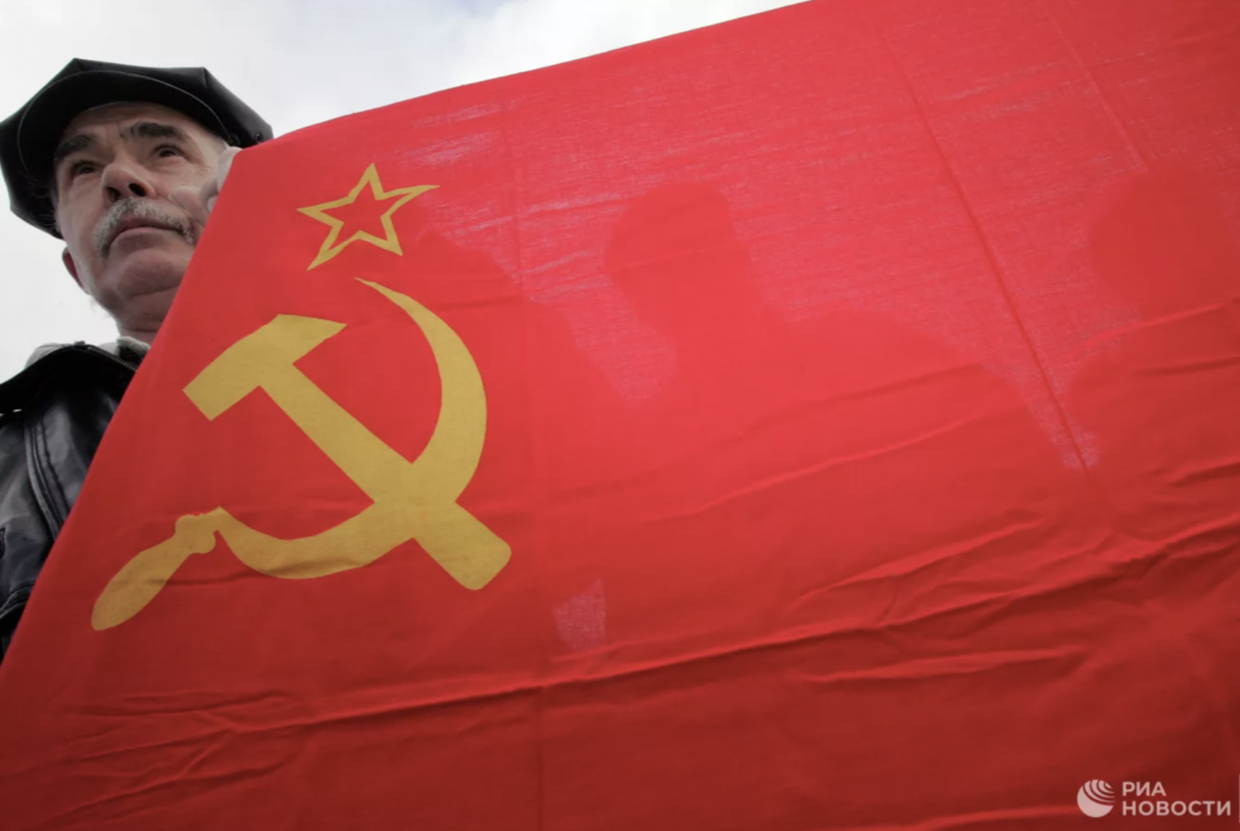
For example, a retired couple from the Stavropol region lost their apartment because of the organization’s activities. The story caught the attention of the media platform ‘Caution, news.’ In 2019, a 63-year-old woman from Mikhailovsk became interested in the Citizens of the USSR movement. Soon, she convinced her husband that the USSR collapsed illegally and destroyed her Russian passport. Some time later, she joined the ‘Free Rus’ community – another branch of the Citizens of the USSR that is interested in Ancient Slavic aesthetics. The couple began regularly attending the organization’s meetings and ceased contact with their children, who did not support their ‘hobby.’
Last year, a neighbor told the elderly couple’s relatives that they sold their apartment to another member of the “Free Rus” community at a price that did not correspond to the apartment’s real market value. When their son tried to get into the apartment, he was thrown out by other members of the extremist organization. He also did not know the whereabouts of his parents. According to media reports, the police could not help him since everything “happened legally.”
Members of the organization are often suspected of economic crimes. According to the regional portal Ufa1.ru, 43-year-old Albert Bukharmetov was sentenced to 18 years in prison in 2022. He was a friend of alleged ‘citizen of the USSR’ Nail Gizetdinov, who died in the hospital after a suicide attempt. According to Gizetdinov's social media posts, in August 2021 the men announced the “revival of the people's militia.” According to the Federal Bailiff Service, both had accumulated large debts on utility bills and bank loans. On his page, Bukharmetov called himself a citizen of the USSR and claimed that the authorities of the Russian Federation had no legal power.
This argument is often used by the ‘citizens of the USSR’ to explain why they refuse to pay their bills. In November of last year, in Anapa, a 56-year-old man stabbed two police officers who accompanied workers of a power supply company who arrived to cut off the man’s home from power because he refused to pay his bills.
“The owner of the house reacted aggressively to the decision to disconnect his house from power, attacked the police officers with a knife, and barricaded himself in the house,” TASS reported, citing Russia’s Ministry of Internal Affairs in the Krasnodar region. The police officers were hospitalized.
“The owner does not pay for gas or electricity and considers that he should get it for free, since he is a ‘citizen of the USSR’,” local blogger Andrey Makovozov later wrote.
Failed revolutionaries
Many famous adherents of the movement have already been charged with extremist activities. One of them is Andrey Zlokazov, who joined the ‘USSR’ group in 2014. In 2018, when a criminal case was initiated against him, he was the ‘head of the Sverdlovsk region of the RSFSR.’ According to Nikita Karpov, a senior investigator of the FSB for the Central Military District, whom Kommersant cites, a case was opened against Zlokazov because of an ‘order’ that he mailed to the leadership of the military units of Russia’s Ministry of Defense and the National Guard of Russia at the end of February 2016.
According to Karpov, the order came from the “commander of the armed forces of the Sverdlovsk region” and was intended for the “commander and commanding staff of all military units” of the region. FSB experts found that the letter promoted revolutionary ideas, such as “to organize self-defense detachments against the authorities of the Russian Federation and other military formations in order to change the constitutional order of the Russian Federation by means of an armed conflict and restore the constitutional order of the USSR.” According to the information provided by the special services, if unit commanders refused to carry out the ‘order,’ Zlokazov promised to “eliminate them as enemies of the USSR.”
Karpov said that Zlokazov “undertook practical measures” when recruiting supporters, and even turned to the former head of Yekaterinburg at the time, Yevgeny Roizman. This visit was filmed. “He came to Roizman and demanded he go to the military units, appeal to the servicemen and make them return to the legal environment of the USSR,” the investigator said.
Marina Melikhova is another imprisoned leader of the organization. In March 2021, the Leninsky district court of Krasnodar found her guilty under Part 2 of Article 280 of the criminal code of the Russian Federation (‘Public calls for extremist activity’) and sentenced Melikhova to three and a half years in prison.
Melikhova recorded videos, including some in which she proposed changing Russia’s constitutional system by violent means. The video footage shows a group of people chanting slogans and calling for the resignation of the current authorities.
Melikhova herself says she is not guilty and stresses that she does not consider the courts or the judges of the Russian Federation legitimate. She talked about this with a correspondent of the Mash YouTube channel in the documentary ‘Stuck in the USSR: How to live according to your own laws?’ Channel Five also noted a curious fact in the activist's biography – Melikhova is the leader of the Aquarius Era Center for Personal Development and teaches business yoga. According to the center's Telegram channel, she accepted payment for the classes in Russian rubles – a currency that the ‘citizens of the USSR’ do not recognize as legitimate.
“Interestingly, the ‘citizens of the USSR’ make use of our pension fund, they have no problems with that. They also use Russian, not Soviet, currency. They shop in our stores,” said political analyst Andrey Suzdaltsev.
He called the existence of such a movement a sign of nostalgic protest.
“When the political landscape changes, there are some people who still cherish the past and even turn it into a symbol of their political orientation. This is a real political sect. I think we need to wait a bit more and this structure will fall apart by itself. We’re living at a time when the USSR is considered the golden age, this attitude is actively spreading now. But over time, it will simply turn into a hobby tied to a particular century,” the expert believes.
At the same time, he admitted that politically speaking, the existence of the Citizens of the USSR organization is indicative of a certain kind of modern disease.
“Perhaps we are not demonstrating our achievements, our improvements, the things we could be proud of, particularly well. Currently, it is very difficult to overshadow the Soviet period with modern achievements,” Suzdaltsev concluded.
